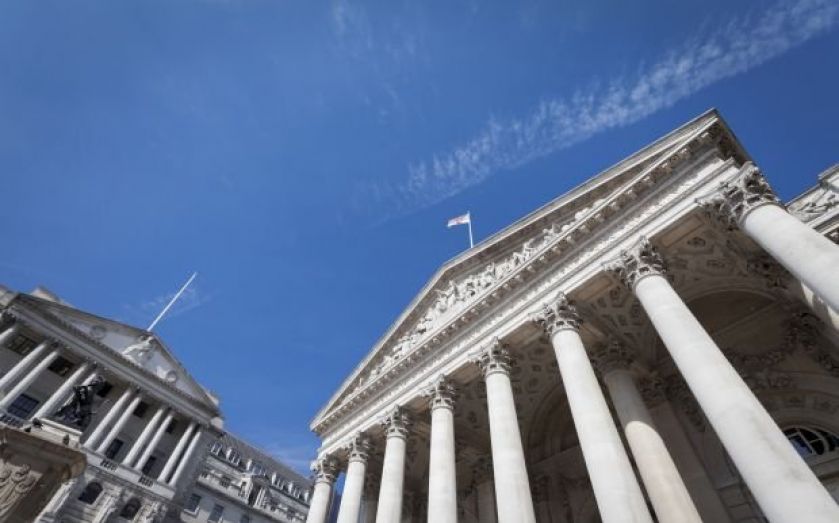Pound jumps against dollar as Bank of England minutes reveal interest rate vote dissent

Two members of the Bank of England's rate-setting monetary policy committee (MPC) voted in favour of raising interest rates by 25 basis points to 0.75 per cent during the August meeting, minutes published today showed.
This is the first time since 2011 the committee has been split on interest rates.
The vote took economists by surprise – a poll by Reuters had showed economists expected the committee to vote unanimously against a rate hike.
Former CBI chief economic adviser Ian McCafferty and Dr Martin Weale, who spent 15 years as director of the National Institute of Economic and Social Research, were identified as the dissenters.
The minutes said that "for two members… economic circumstances were sufficient to justify an immediate rise in Bank Rate", adding:
These members noted that the continuing rapid fall in unemployment alongside survey evidence of tightening in the labour market created a prospect that wage growth would pick up.
In recent months, depressed wage growth has become a major deciding factor for the MPC. Figures for the second quarter published last week showed wages fell 0.2 per cent year-on-year, the figure's first fall since 2009.
Although governor Mark Carney has previously seemed hawkish on rates, he was more cautious during last week's quarterly Inflation Report. "In light of the heightened uncertainty about the current degree of slack, the committee will be placing particular importance on the prospective paths for wages and unit labour costs," he said.
But the minutes showed McCafferty and Weale believed depressed wage growth was due to a "lag".
They noted that it was possible that wages were lagging developments in the labour market to some extent. If that were true, wages might not start to rise until spare capacity in the labour market were fully used up. Since monetary policy, too, could be expected to operate only with a lag, it was desirable to anticipate labour market pressures by raising Bank Rate in advance of them. Moreover, if recent robust GDP growth rates had been underpinned by stimulatory monetary policy, in addition to a release of pent-up demand driven by reduced uncertainty and improved credit conditions, then the erosion of spare capacity would be likely to remain rapid while policy remained expansionary.
Having fallen against both the dollar and the euro after disappointing inflation figures yesterday, the pound jumped 0.21 per cent against the dollar and 0.40 per cent against the euro this morning.